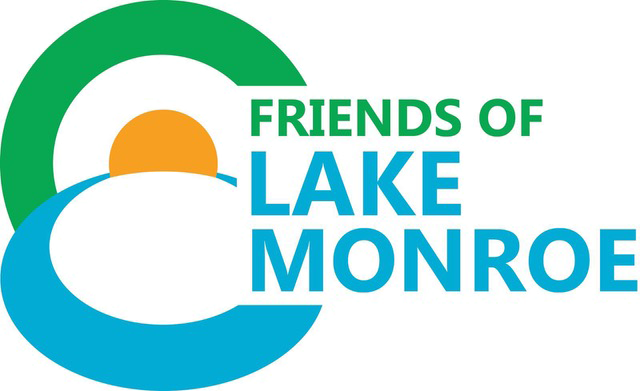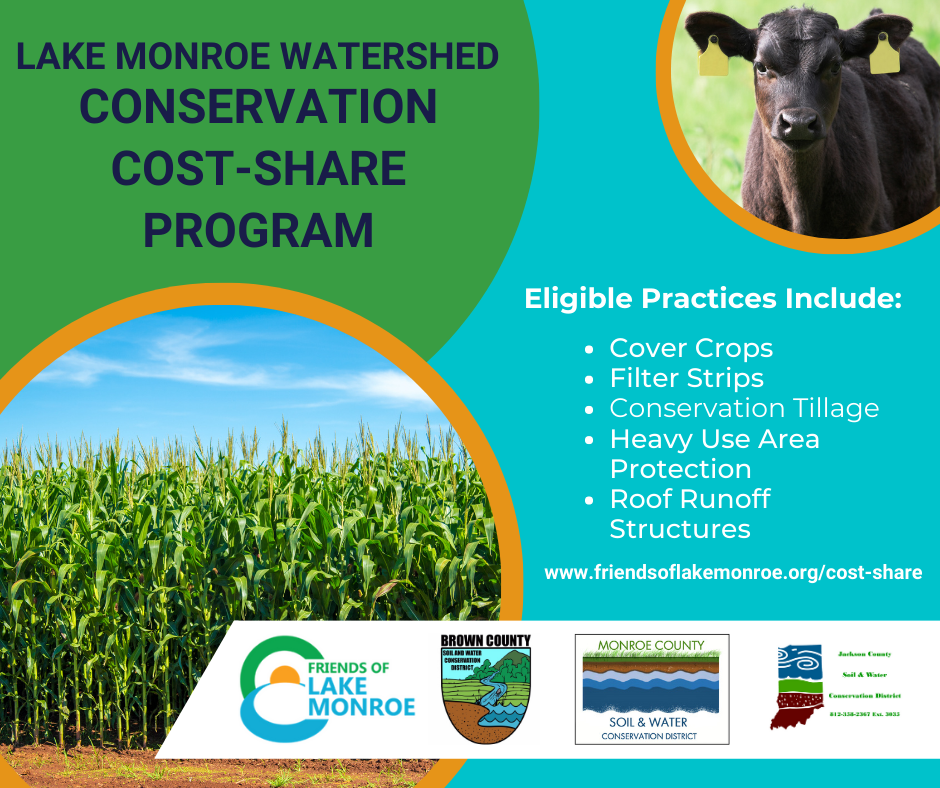Lake Monroe Watershed Cost-Share Program 1st Quarter Update
Lake Monroe Watershed Cost-Share Program 1st Quarter Update
February 20, 2023
Friends of Lake Monroe has launched a new voluntary cost-share program for the implementation of Best Management Practices (BMPs) that reduce erosion and water pollution. This funding is available to landowners in the Lake Monroe watershed, which spans portions of Monroe, Brown, and Jackson Counties. Example practices include planting cover crops after the main crops are harvested, installing permanent vegetation along streams, fencing livestock out of streams, and installing heavy use area protection where livestock gather. Adopting best management practices is a key strategy for reducing the amount of sediment, nutrients, and fecal contamination reaching the lake and its tributaries. Most practices will be funded at 75% of the total cost (landowner pays 25%). Financial support comes from the Indiana Department of Environmental Management and the Monroe County Stormwater Board. Additional in-kind contributions were provided by our partner organizations including the Soil and Water Conservation Districts (SWCDs) in Monroe, Brown, and Jackson Counties. Our focus this quarter has been developing the cost-share program and accompanying promotional materials.
Do you know someone who lives in the watershed who might be interested in learning more? Detailed program information is posted online at www.friendsoflakemonroe.org/cost-share. Watershed Coordinator Maggie Sullivan (812)-558-0217 or watershed@friendsoflakemonroe.org) is excited to meet with applicants to discuss their ideas. She can also provide written materials to share with friends or neighbors or to post in local businesses. This spring we will continue promoting the cost-share program and working with potential applicants. Friends of Lake Monroe will participate in the Monroe, Brown, and Jackson SWCD Annual Meetings in March. Other promotional strategies include press releases, brochures, flyers posted in local businesses, social media posts, and word-of-mouth. We have also started planning agricultural field days, forestry best management practice trainings, and septic system maintenance workshops. Details will be coming soon in our newsletter and on our website.

